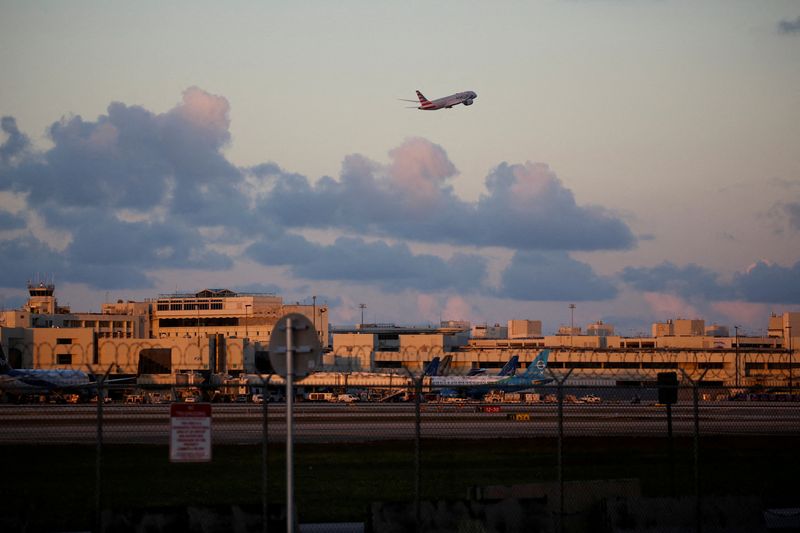By David Shepardson
WASHINGTON (Reuters) - The White House on Monday urged Republicans who control the House of Representatives to drop a provision in aviation legislation that would let airlines advertise the price of tickets without including government fees and taxes and to include new consumer protections for passengers.
The House is set to vote this week on legislation authorizing funding for the Federal Aviation Administration (FAA), but Republicans excluded many consumer protections sought by Democratic President Joe Biden.
The bill would rescind a 2012 Transportation Department regulation that requires airlines to advertise full fares including government fees and taxes. Democratic Representatives Jan Schakowsky, Alexandria Ocasio-Cortez and others are seeking a vote on an amendment to keep the full fare disclosure rules.
Schakowsky said that "the airline industry and congressional Republicans are once again prioritizing profits over people."
The White House said in a statement of administration policy that "the disclosure requirements currently in place for passenger tickets are necessary to help consumers comparison shop for a ticket."
Biden's administration in June submitted draft legislation to Congress seeking to mandate that airlines pay cash compensation for delays of three hours or more when carriers are responsible. While Biden in May said the administration was writing new rules to require airlines to compensate passengers with cash for significant flight delays, the passage of legislation would bolster the administration's legal authority.
The Transportation Department plans to write regulations requiring airlines to cover expenses such as meals and hotels if carriers are responsible for stranding passengers. Most carriers voluntarily committed last August to provide hotels or meals but resisted providing cash compensation for delays.
There is no legal requirement for airlines to compensate U.S. passengers for delayed or canceled flights. The European Union and some other countries require compensation of up to 600 euros ($674) for significant delays.

The White House also expressed concern in the statement about the House bill's proposal to raise the mandatory commercial pilot retirement age to 67 from 65 - a change opposed by major aviation unions.
"Making this change without doing research and establishing any necessary policies would be outside the international standard," the White House said.